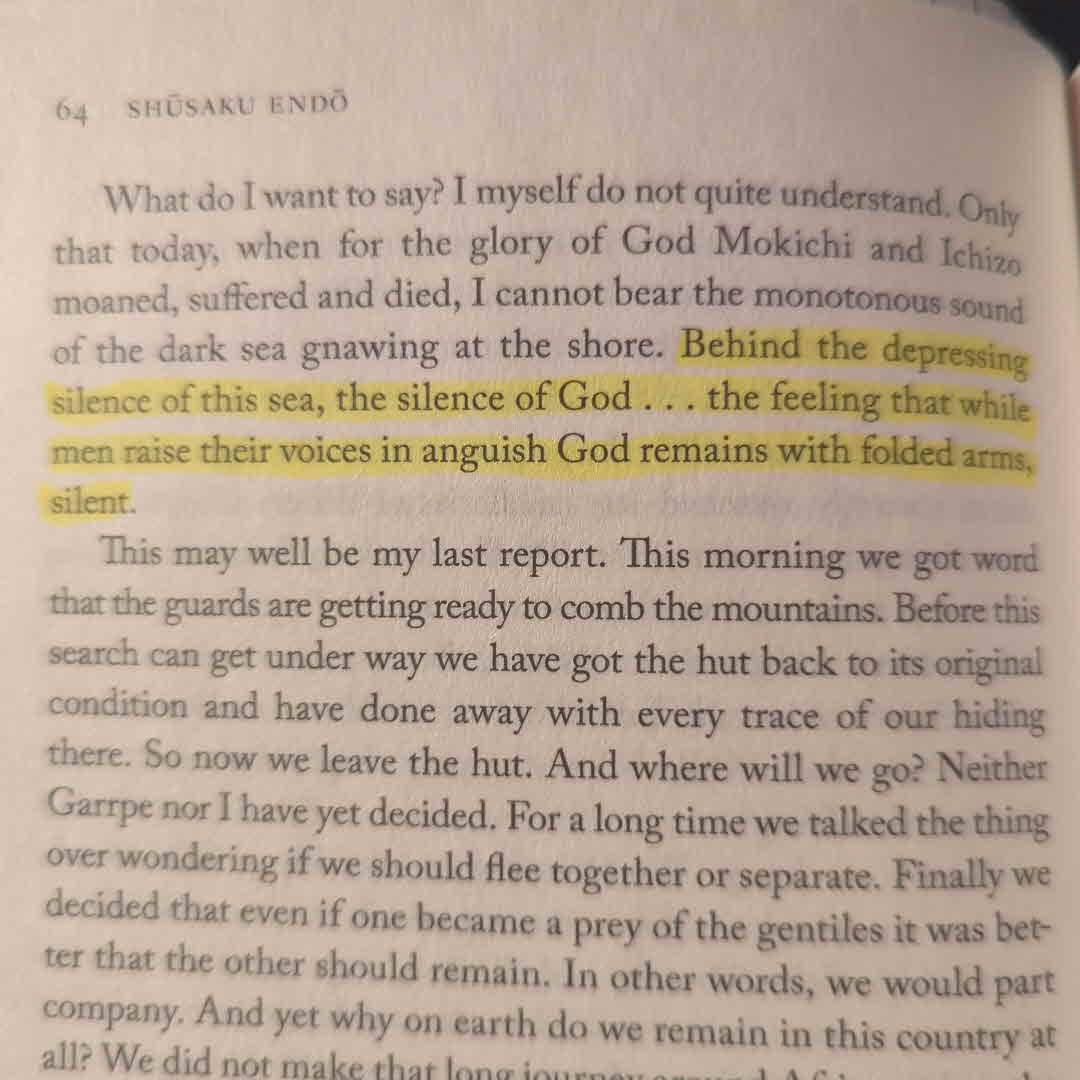"I've been drunk for about a week now, and I thought it might sober me up to sit in a library."
"Has it?"
"A little bit, I think. I can't tell yet. I've only been in here an hour."

"I've been drunk for about a week now, and I thought it might sober me up to sit in a library."
"Has it?"
"A little bit, I think. I can't tell yet. I've only been in here an hour."

"What do I want to say? I myself do not quite understand. Only that today, when for the glory of God Mokichi and Ichizo moaned, suffered, and died, I cannot bear the monotonous sound of the dark sea gnawing at the shore. Behind the depressing silence of the sea, the silence of God...the feeling that while men raise their voices in anguish God remains with folded arms, silent.
A Catholic Jesuit missionary questions his faith while enduring the "Silence of God". His faith transforms from zealotry to humility as he comes to terms with the suffering that his very presence in Japan has inflicted on those he is supposed to be "saving."
This resonated with me as a former religious proselytizer turned agnostic.
One of my all-time favorite books. The most impressive part of this book is the lack of anachronisms. You feel like you're literally in the mind if a 14th century monk with all the worldviews and biases that go with it.
Have Wikipedia and Google translate open unless you're an accomplished polyglot of Indo-European languages. Eco was an erudite scholar of languages, history, and literature, and he doesn't hold back or dumb anything down.
A fascinating look at the horrors of colonial Congo. I must admit that I was surprised by the writing style. It was a very indirect narrative. The dialogue could be quite confusing at times given that each person doesn't get a new line as they're speaking.